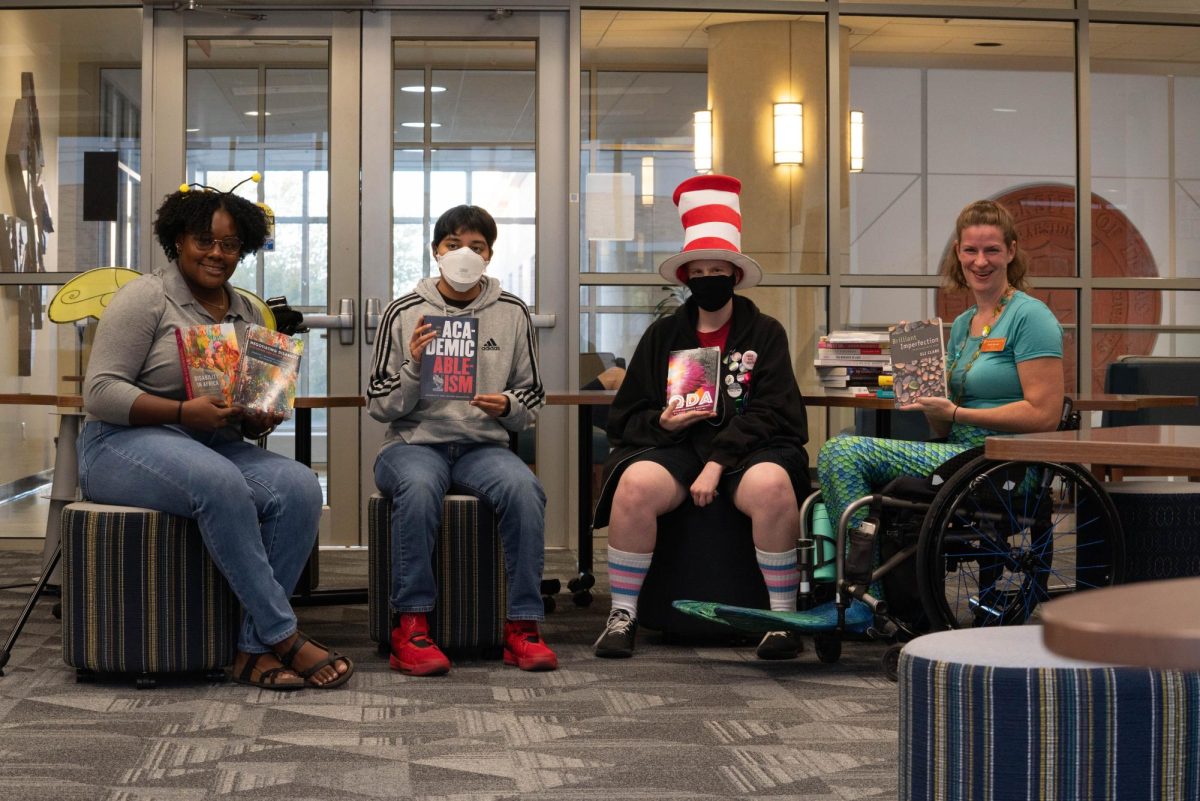The UT Disability Cultural Center will launch a new disability-focused library by the start of the spring semester, allowing students to check out books and academic resources specific to disability identity and culture — a topic that’s not widely recognized in other libraries.
DCC director Emily Shryock said the library will include novels, poems, biographies and other resources to represent the diversity of disability and wide range of interests students might have, such as checking out books for personal growth or finding sources for Disability Studies courses. The DCC, which launched in January, started a HornRaiser campaign for Disability Access and Belonging Month. Through the campaign, the DCC raised about $300 and received almost 100 book donations for the library.
“When we talk about culture and identity, it has that community aspect to it, which is what we’re trying to build,” Shryock said. “There’s also that identity piece of understanding disability as a central part of who you are, often along with other pieces of your identity, and not as a negative.”
Leo Ramírez, the former president of UT’s Disability Advocacy Student Coalition, said he’s excited to see the library come to fruition after thorough planning by the DCC Advisory Committee. By accessing books that are otherwise hard to find, he said, the UT community can learn about disability through a cultural lens and help combat ableism and stigma.
“Collections depend on the knowledge, bandwidth and lived experiences of the people that create them,” Ramírez, a history and humanities senior, said in an email. “A collection curated by the DCC offers the opportunity to intentionally gather books centering disabled voices.”
Isabella Candanosa, co-founder of the Deaf Culture Alliance at UT, said students without disabilities will also benefit from the library, as reading disability-focused content will help them develop cultural sensitivity and awareness for their careers.
“I encounter misinformation about my community every day, mostly because of well-meaning non-disabled people trying to educate about the disabled experience, not knowing that their information is inaccurate,” Candanosa, a speech, language and hearing sciences senior, said in an email. “Some people aren’t even aware of how many disability advocates are out there trying to educate about our experiences because we are often not offered the same platforms as our non-disabled counterparts.”
Shryock said students will soon be able to check out books on the DCC’s website in addition to browsing book carts at DCC events, like their “disability discussions” program, hosted in the Student Services Building on Wednesday afternoons. The library will eventually find a permanent home in the DCC’s office, she said, which is currently under renovation on the first floor of the SSB. Shryock said the DCC doesn’t have an opening date for its office yet.
“This is not going to be the only campaign that we have,” Shryock said. “We’re still a very new center and building our network, so we were pleased with that amount that will actually get us what we need to take that first step.”
The DCC will use the funding from the campaign to purchase display carts and software to manage online book checkouts, Shryock said. She said she hopes the DCC can continue collecting donations to expand the library selection before its launch next semester.
“(The library) is not just for disabled people or people with disabilities,” Shryock said. “We do want this to be an opportunity for everyone to be able to engage and learn.”



















